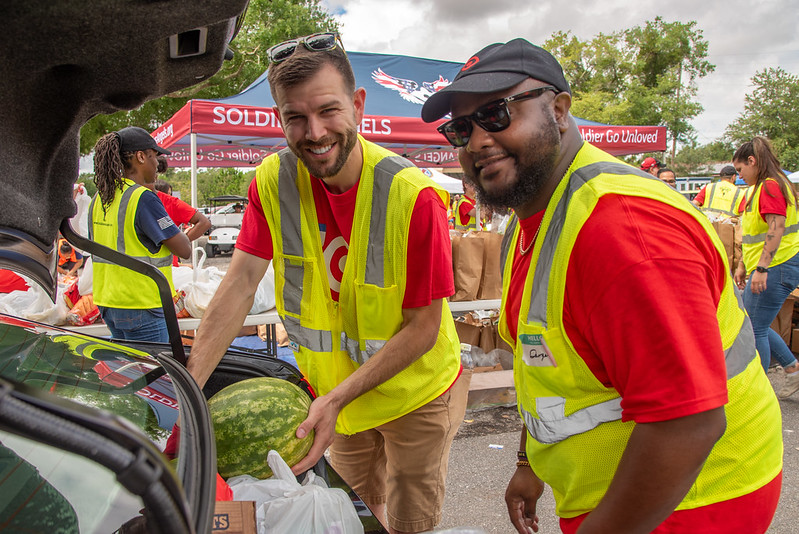It’s no secret that substance abuse is a growing problem in the United States. Unfortunately, Veterans are not exempt from this dangerous trend. In many cases, finding adequate treatment is more difficult for the men and women who have served our country than it is for the general population. As a member of the National Guard, a person in recovery and someone who works in the rehab industry, I’ve seen this problem firsthand. It’s not that there aren’t treatment centers willing to address addiction in Veterans. The problem is that addiction in Veterans is often tied to complex causes, and many rehabilitation centers don’t have the resources or skills to address them fully.
Managing mental health
Addiction rarely occurs in a vacuum. In most cases, there’s a bigger driver of alcohol or drug use. For some Veterans, this may simply be the difficult nature of adjusting back to life off-duty. I personally grappled with this, using alcohol and drugs to try to feel normal after returning to a home. But for many, mental health struggles drive substance use disorder. Psychological and emotional trauma felt in the line of duty rarely stays on the battlefield. For countless Veterans, the haunting memories of these events linger, manifesting in the form of mental health conditions like post-traumatic stress disorder, depression or anxiety.
The extent of the problem becomes obvious when you look at the statistics:
- Of service members returning from Iraq or Afghanistan, 5 percent struggle with PTSD or depression, according to the Mental Health Services Administration
- According to the National Institute on Drug Abuse (NIDA), about 1 in 6 Veterans who served in Iraq and Afghanistan experience symptoms of PTSD.
- According to the VA’s National Center for PTSD, almost 20 percent of female Veterans who served in Iraq and Afghanistan have been diagnosed with PTSD.
Tragically, many Veterans who deal with mental health conditions never get the help they need. According to Mental Health Services , only 50 percent of returning service members with mental health conditions receive treatment for them. Of the service members who do undergo behavioral health care, only slightly more than half of them receive adequate treatment. Left unaddressed, this can lead to a variety of dangerous consequences — including addiction.
The complexity of co-occurring disorders
Untreated mental health conditions — especially those induced by stress or trauma — can be painful to deal with. It’s no wonder that so many Veterans turn to substances to cope. Between 2004 and 2006, 7.1 percent of U.S. Veterans met the criteria for a substance use disorder.
When addiction occurs alongside a mental health issue, the two conditions are referred to as co-occurring disorders. Many members of the general population struggle with co-occurring disorders, but Veterans are disproportionately affected. Co-occurring PTSD and addiction are particularly prevalent. According to the VA’s National Center for PTSD, nearly 1 out of every 3 Veterans seeking treatment for a substance use disorder also has PTSD.
In many cases that involve co-occurring disorders, Veterans only receive treatment for one condition while the other remains unaddressed. While it may seem better to receive some form of care than none at all, an incomplete approach rarely resolves deeper issues or provides Veterans with long-lasting relief. In fact, the consequences of undiagnosed or untreated co-occurring disorders increases a Veteran’s chances of incarceration, homelessness, medical issues or even suicide, according to Mental Health Services.
An integrated approach that addresses both addiction and mental health conditions is essential to long-term recovery. If you suspect that you or a Veteran you know is struggling with co-occurring disorders, know that comprehensive care is available.

Topics in this story
More Stories
Soldiers' Angels volunteers provide compassion and dedication to service members, Veterans, caregivers and survivors.
Veterans are nearly three times more likely to own a franchise compared to non-Veterans.
The Social Security Administration is hoping to make applying for Supplemental Security Income (SSI) a whole lot easier, announcing it will start offering online, streamlined applications for some applicants.






They will throw you to the dogs every time at the VA, every time to cover their asses. They do not care about the vets. Ihave been trying to get proper treatment from the neurology department for over a year now, and so far, they have done absolutely nothing for me, absolutely nothing.. They admit that I need my left knee replaced, that I need back surgery very bad, and deep brain surgery very bad, but for over a year, have done absolutely nothing to any of those ends. They say that it is all my fault.I have been rated as 100 percent disabled for years and need an electric scooter to get around, but they have only given me one to use to go from my garage, to go to my curb to get my mail and that is it, nothing else. this is pure stupidity on their part, but they blame me. They refuse to schedule any surgery for any of my problems.
What can I say, I started off in ADTP/SAMI/WAVE programs work therapy 2004 until April of 2005 and got hired as a housekeeper WG-1 10.18$ hour and ended up at GS-7 step-4 22.06$ hour. The V.A and former colleagues wanted me out for caring about our sick veterans in bed. I’m one of the former employees that’s part of the wait-time scandal in 2014. I’m the untold story. I’m also part of the reason why the Accountability/Whistleblower/2nd Amendment Veteran Protection Act are done. I truly am a disable veteran that got a raw deal. I’m left no other choice but to sue the system. It beat’s better than being involved in medical criminal activity
Former V.A. staff I would say I got in trouble for caring, then ended up in disability retirement and now I’m suing. When the government abandoned you there’s nowhere to go, so what do you do.